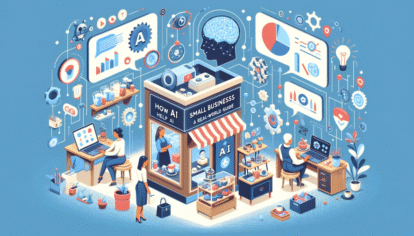In recent years, sustainability has evolved from a niche concern to a core business strategy. It is no longer enough for companies to simply focus on profits; they must also prioritize the planet and its people. In this article, we explore why sustainability is the future of business, highlighting the key drivers behind this shift and how adopting sustainable practices can provide businesses with a competitive edge.
1. The Growing Demand for Eco-Friendly Products and Services
Consumers are increasingly aware of environmental issues and are making purchasing decisions based on sustainability factors. According to a 2020 survey, 73% of global consumers said they would definitely or probably change their consumption habits to reduce their environmental impact. Businesses that adopt eco-friendly practices are seen as more socially responsible and are likely to attract loyal customers.
Eco-Conscious Consumers Are Here to Stay
Sustainability is no longer just a trend; it is a movement. Consumers are willing to pay a premium for products that are sustainably sourced, energy-efficient, or made with minimal environmental impact. The shift toward sustainability is most evident in industries like fashion, food, and technology, where brands are embracing organic materials, renewable energy, and recyclable packaging to appeal to the eco-conscious market.
See also: The Impact of Remote Work on Global Business Operations
The Role of Corporate Social Responsibility (CSR)
Corporate social responsibility is a key element of sustainability in business. CSR initiatives, such as reducing carbon emissions, improving supply chain transparency, and supporting community-based environmental programs, help businesses build a positive public image. By integrating CSR into their operations, companies not only contribute to the environment but also foster goodwill and trust among consumers.
2. Cost Savings and Efficiency Through Sustainable Practices
Sustainability is not just about doing good for the planet; it’s also about doing good for the bottom line. Many sustainable practices lead to long-term cost savings, improved efficiency, and better resource management.
Energy Efficiency and Reduced Operational Costs
Implementing energy-efficient practices, such as upgrading to LED lighting, optimizing heating and cooling systems, and utilizing renewable energy sources, can significantly reduce energy consumption and operational costs. Over time, these initiatives result in substantial savings.
Waste Reduction and Resource Optimization
Sustainable businesses are also focused on minimizing waste and making the most of their resources. Implementing waste reduction strategies, such as recycling, reusing materials, or adopting a circular economy approach, can reduce disposal costs and improve overall resource efficiency. By reducing waste, businesses can also decrease their reliance on raw materials, which may become more expensive and harder to source in the future.
3. Regulatory Compliance and Risk Management
Governments around the world are tightening environmental regulations to curb climate change and protect natural resources. Companies that do not comply with these regulations may face fines, legal issues, or reputational damage. Therefore, sustainability is becoming a critical part of risk management.
Anticipating and Adapting to Regulations
By adopting sustainable business practices early, companies can anticipate and adapt to stricter regulations. For example, reducing carbon emissions ahead of time ensures compliance with international climate agreements, such as the Paris Agreement, and helps avoid penalties associated with non-compliance.
Risk Mitigation in Supply Chains
Sustainability also plays a role in managing supply chain risks. Companies that work with suppliers who adhere to sustainability standards are less likely to face disruptions due to environmental disasters, labor strikes, or supply shortages. Furthermore, sustainable supply chains can be more resilient, as they are built with ethical sourcing, local production, and reduced environmental impact in mind.
4. Competitive Advantage and Brand Loyalty
Businesses that embrace sustainability can gain a competitive edge in the marketplace. Companies that focus on environmental and social responsibility are often viewed more favorably by both consumers and investors.
Attracting Investors Focused on ESG
Environmental, social, and governance (ESG) investing has gained significant momentum in recent years. Investors are increasingly looking to support businesses that demonstrate a commitment to sustainability. Sustainable companies are often seen as less risky investments, as they are more likely to thrive in a world with increasing regulatory pressure and changing consumer demands.
Building Brand Loyalty and Advocacy
When businesses adopt sustainable practices, they create opportunities for deeper connections with customers. Brands that align their values with those of their target audience are more likely to cultivate brand loyalty and become advocates for sustainability. Customers who identify with a company’s commitment to environmental protection and social justice are more likely to remain loyal and spread the word.
5. Enhancing Innovation and Driving New Business Opportunities
Sustainability fosters innovation by pushing businesses to rethink their products, services, and business models. As companies strive to meet sustainability goals, they are motivated to create new, innovative solutions that drive long-term growth.
Innovation in Products and Services
Sustainability challenges companies to design products that are more resource-efficient, recyclable, or biodegradable. This innovation leads to the creation of new products that meet the demands of eco-conscious consumers. For example, electric vehicles, solar energy solutions, and plant-based food alternatives are products that have emerged as part of the sustainability movement.
New Business Models for a Sustainable Future
Sustainability has also given rise to new business models, such as the sharing economy, where companies facilitate access to goods and services rather than ownership. Businesses are also adopting subscription-based models that encourage recycling and reusing products, thus reducing waste.
6. The Social Impact of Sustainable Business
Sustainability in business is not just about the environment; it also involves addressing social issues such as inequality, labor rights, and fair trade. By focusing on the social aspects of sustainability, companies can contribute to positive social change.
Fair Trade Practices
Many businesses are now adopting fair trade practices, ensuring that workers in their supply chains are paid fairly and work in safe conditions. This not only helps improve the lives of individuals in developing countries but also strengthens the overall supply chain by promoting ethical production methods.
Empowering Local Communities
Sustainable businesses often work closely with local communities to support initiatives that improve education, healthcare, and infrastructure. By investing in local communities, companies can create goodwill and build strong, long-lasting relationships with their stakeholders.
7. The Future of Business: A Sustainable World
The future of business is undoubtedly sustainable. As awareness of environmental issues continues to grow, businesses that fail to adapt to the changing landscape will be left behind. By embracing sustainability now, businesses can not only reduce their environmental impact but also position themselves for future success.
Future-Proofing Through Sustainability
Sustainability is about future-proofing your business. As natural resources become scarcer and more expensive, businesses that rely on unsustainable practices will struggle. On the other hand, companies that embrace renewable energy, sustainable sourcing, and green technologies will be better equipped to thrive in an evolving world.
FAQs about Sustainability in Business
- What is the importance of sustainability in business?
Sustainability is crucial because it helps businesses reduce their environmental impact, improve efficiency, and build a positive reputation. It also ensures compliance with regulations and attracts eco-conscious consumers. - How can businesses implement sustainability practices?
Businesses can implement sustainability by reducing energy consumption, minimizing waste, sourcing materials responsibly, adopting green technologies, and promoting social responsibility. - What are the financial benefits of adopting sustainable business practices?
Sustainable practices often lead to cost savings through energy efficiency, waste reduction, and improved resource management. Over time, these savings can significantly improve a company’s bottom line. - How can sustainability enhance a brand’s reputation?
By embracing sustainability, businesses can differentiate themselves from competitors, attract loyal customers, and build strong relationships with investors and stakeholders. - Is sustainability only important for large businesses?
No, sustainability is important for businesses of all sizes. Small businesses can implement sustainable practices that reduce costs and attract customers, making them more competitive in the marketplace. - How does sustainability impact the supply chain?
Sustainability can lead to more resilient and ethical supply chains by reducing environmental impact, ensuring fair labor practices, and improving resource efficiency.
Conclusion
Sustainability is undeniably the future of business. From reducing costs and improving efficiency to fostering innovation and gaining a competitive edge, the benefits of adopting sustainable practices are clear. As consumers, investors, and governments increasingly prioritize sustainability, businesses that take action now will be better equipped to thrive in the years to come. Embracing sustainability is not just a smart business strategy; it is essential for creating a sustainable and prosperous future for all.




 How to Successfully Scale Your Startup in 2025
How to Successfully Scale Your Startup in 2025